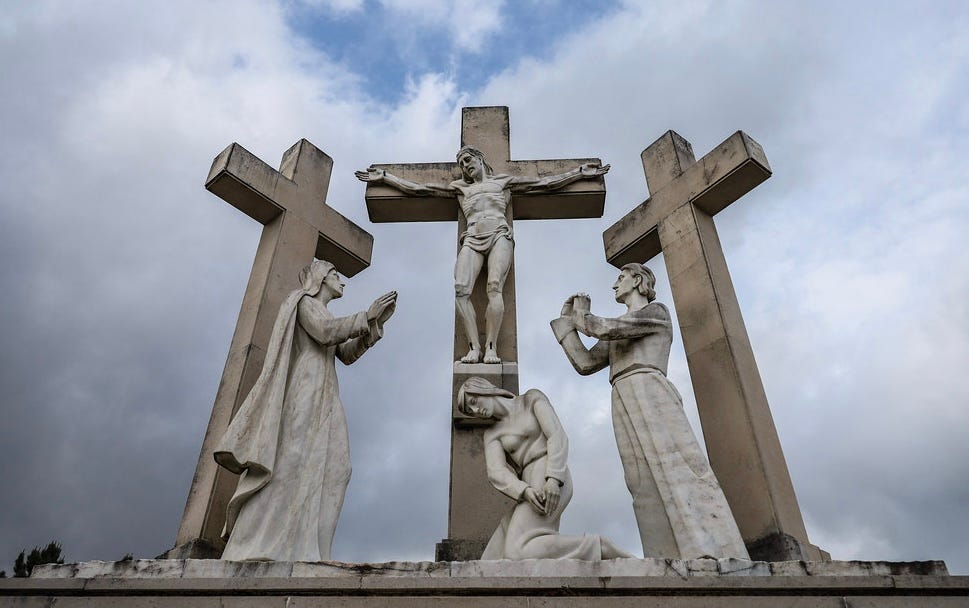Introduction
Titles are so important, aren’t they? For instance, they command respect (well, the ones I am thinking of do). They also clarify the situation in which we find ourselves … like this Gospel Enquiry. It was only after writing it, that I added the title, which did not come to me until I wrote it … and then, everything became clear, not just the Gospel Enquiry, but things that were bothering me, things that I feel unprepared for, things that threaten to derail me.
I recall from my time as a religious education consultant and working on religious education guidelines for the diocese, that love is doing that which is for the good of the other. I recognise that “good” as being what Cardinal Joseph Cardijn referred to as the temporal and eternal destiny of each person.
The Religious Education Team, to which I belonged, worked on developing guidelines for teaching about emotional development. We promoted an understanding of compassion as passionate love, not in an erotic sense, but of being passionate about doing that which is for the good of the other.
And here I am now, looking at Fr Lew’s photo of the crucifixion scene outside Fatima, recognising anew, the passion of God made visible in the life of Jesus, Son of God, Son of Man, even to dying on the Cross … and made visible in every person who does passionately that which is for the good of the other, especially, for their enemies.
The Gospel
Jesus said to his disciples: ‘I say this to you who are listening: Love your enemies, do good to those who hate you, bless those who curse you, pray for those who treat you badly. To the man who slaps you on one cheek, present the other cheek too; to the man who takes your cloak from you, do not refuse your tunic. Give to everyone who asks you, and do not ask for your property back from the man who robs you. Treat others as you would like them to treat you. If you love those who love you, what thanks can you expect? Even sinners love those who love them. And if you do good to those who do good to you, what thanks can you expect? For even sinners do that much. And if you lend to those from whom you hope to receive, what thanks can you expect? Even sinners lend to sinners to get back the same amount. Instead, love your enemies and do good, and lend without any hope of return. You will have a great reward, and you will be sons of the Most High, for he himself is kind to the ungrateful and the wicked.
‘Be compassionate as your Father is compassionate. Do not judge, and you will not be judged yourselves; do not condemn, and you will not be condemned yourselves; grant pardon, and you will be pardoned. Give, and there will be gifts for you: a full measure, pressed down, shaken together, and running over, will be poured into your lap; because the amount you measure out is the amount you will be given back.’ (Luke 6:27-38)
The Enquiry
See
Jesus gives a long list of the things his followers must to do be faithful to their vocation. Choose one or two from his list and identify in your life the time/s when you tried to live by this/these commands.
Why does Jesus tell his followers to love their enemies? What are the characteristics of that love? Where do you see that sort of love in the world today?
What will happen for those who follow Jesus’ commands about loving their enemies and treating them with compassion?
Judge
What do you think about Jesus’ commands about loving our enemies and being compassionate towards them?
If world leaders who claim to be Christian, followed Jesus’ commands about loving their enemies, what would change?
How is your faith challenged by what Jesus commands us to do about loving our enemies?
Act
What are you prompted by this Gospel to change about the way you interact with the world? How will this change impact your life and the lives of others?
What small action can you take that will contribute to bringing about this change?
Who can you involve in your action and how, when and how often will you get them to participate in your action?
Author: Pat Branson
Image Source: Fr Lawrence Lew, OP (Creator) Crucifixion scene outside Fatima. Flickr, CC BY-NC 2.0


